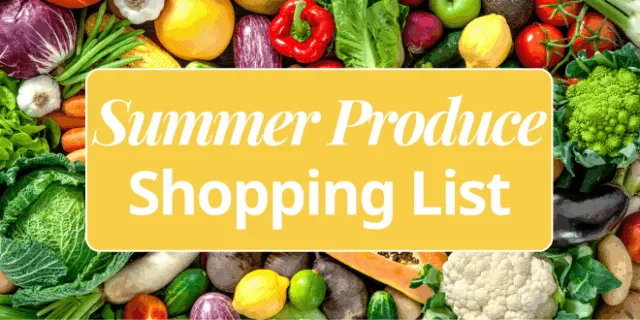The information included in this post is for educational purposes only on the benefits of a pregnant Whole30. It is not intended nor implied to be a substitute for professional medical advice. Always consult your healthcare provider to determine the appropriateness of the information for your own situation, or if you have any questions regarding conception, pregnancy, or your prenatal treatment plan.
By Stephanie Greunke, Registered Dietitian
If you’re familiar with the Whole30 program, you understand how much the food you eat affects your health. When you’re pregnant, the quality of the food you eat not only affects your health, but the health of your baby. We’re also starting to understand that it affects the health of future generations.
In fact, the developmental origins theory proposes that the nine months of pregnancy are the most consequential period of a person’s life! The food you consume and the behaviors you exhibit during your pregnancy can permanently influence the wiring of your baby’s brain, the functioning of his/her organs, appetite, metabolism, intelligence, and temperament.
Nutrition and health behaviors during pregnancy are extremely important. Let’s explore five ways that following the Whole30 guidelines can optimize your pregnancy.
- It’s nutrient-dense
- The Whole30 helps you understand your response to foods
- It can reduce common pregnancy complaints
- The Whole30 can improve your confidence and self-esteem
- It can set you up for a smoother transition to parenthood
The Whole30 is Nutrient-Dense
In my opinion, Whole30 is one of the most nutrient-dense nutritional plans you can follow. During a Whole30, you’ll focus on eating quality vegetables, fruits, proteins, and healthy fats. All of these foods are jam-packed with the vitamins, minerals, fiber, and phytochemicals that help your body and your baby thrive.
During pregnancy, your baby places additional nutrient demands on your body. Your calorie needs increase by about 340 calories in the second trimester and 450 calories in the third trimester. You also require more nutrients such as folate (from leafy greens), iron (from meat, chicken, and fish), choline (from eggs and liver), DHA (from fatty fish), and vitamin C (from citrus, strawberries, leafy greens, bell peppers, and sweet potatoes).
The Whole30 template emphasizes foods rich in these important nutrients required for your baby’s development while supporting your increased needs.
Understand Your Response to Certain Foods
Many people aren’t aware that they’re sensitive to or intolerant of certain foods. Imagine if you had a piece of sandpaper constantly rubbing on your skin. After a while, you wouldn’t even notice it. It wouldn’t feel good, but you would get used to that feeling. Once you remove the sandpaper, you’d notice how much better your skin felt despite years of it rubbing on your skin. This is similar to the experience some individuals have when they remove irritating foods from their diet. You might feel like a new and improved version of yourself. This is beneficial at any time of your life, but with all of the additional discomforts that can accompany pregnancy, why not give yourself some extra relief?
This information may also be invaluable to the health of your baby in utero, while nursing or formula feeding, and when you include solid food in your baby’s diet. If you have an allergy or intolerance to a certain food, there’s a chance your baby may also be allergic or sensitive to that food. The Whole30 program cuts many common allergens from the diet (such as dairy, wheat, soy, and corn) so its use as an elimination diet can prove to be extremely beneficial for your growing family.
Reduce Common Pregnancy Complaints
Common pregnancy complaints such as headaches, nausea, fatigue, and pain can be reduced or eliminated with sound dietary strategies. One such strategy is adopting a whole foods-based diet. Hundreds of thousands of people have completed the Whole30 program with life-changing results. This includes relief from migraines, fatigue, gastrointestinal complaints, and painful inflammatory conditions. Other commonly reported benefits include better sleep, mental clarity, and a sunnier disposition. All of which are welcomed benefits when pregnant.
You may even reduce your risk of pregnancy complications, such as gestational diabetes and preeclampsia, by focusing on the healthy eating principles outlined in the Whole30.
Improves Confidence and Self-esteem
Many people, if not most, struggle with body image during and after their pregnancy. You may find it tough to see your body changing. You may wonder if you’ll ever look like “yourself” again. And while you’re struggling with body image, you may also be beating yourself up over your vanity. Tricky, right?
If you find yourself struggling with body image issues, one of the best things you can do is fill your plate with good food.
Choosing healthy food is not only important for the physical growth of your baby, but also his or her mental health. Your thoughts affect your growing baby, so choosing foods that promote your mental health should be a primary focus.
We all know how we feel when we overindulge in something super sweet or processed. It may have been delicious for the 10.2 seconds you were devouring it, but afterward some people deal with the sugar-shame-spiral (although it doesn’t have to be this way if you read and embrace the principles in Food Freedom Forever!). If you’re already struggling with body image issues, this is an uncomfortable place to be.
Conversely, filling your plate with whole, nutrient-dense foods as much as possible (again, this is not about perfection) will help you feel confident in your choices and in your skin.
And if you REALLY need an additional push, know that a whole-foods based diet will also help you gain weight at a healthy pace.
A Smoother Transition to Parenthood
Parenthood is a gift and the most demanding job you’ll ever have. I prepared myself as best as I could with freezer meals and support from my midwives and mom. However, I had no idea how taxing life with a new baby would be. Your body has created and carried another human for nine months. You’re exhausted, and now you have to essentially run a marathon to get the baby out. After the baby is out, it may be a LONG time until you get a full night’s sleep. Talk about taxing!
The good news is that your diet during pregnancy can help you through this intense transition. A nutrient-dense diet will help your body heal and return to its pre-pregnant state faster. It will also help prevent postpartum depression, mood, and anxiety disorders. These are conditions that aren’t often discussed and are more common than you would expect. Since this can significantly impact your health and connection to your baby, we want to make sure we’re doing everything possible during pregnancy to reduce your risk.
A nutrient-dense diet will also help make sure you have enough stores to keep YOU feeling as vibrant and resilient as possible. This is especially true if you’re nursing. Those of you with more than one child, you know how important this is!
You’re on your Way to a Healthy, Happy Pregnancy
Essentially, what’s healthiest for you is going to be healthiest for baby. It’s hard to debate the benefits of a Pregnant Whole30–it’s focused on whole, real foods and food quality. Following the principles of the Whole30 is a great option during pregnancy. Run it past your provider before starting and don’t hesitate to reach out if you need more support!
Use the good food principles and modifications for pregnancy outlined in the book to get you started. You’re on your way to a healthy, happy pregnancy!
















